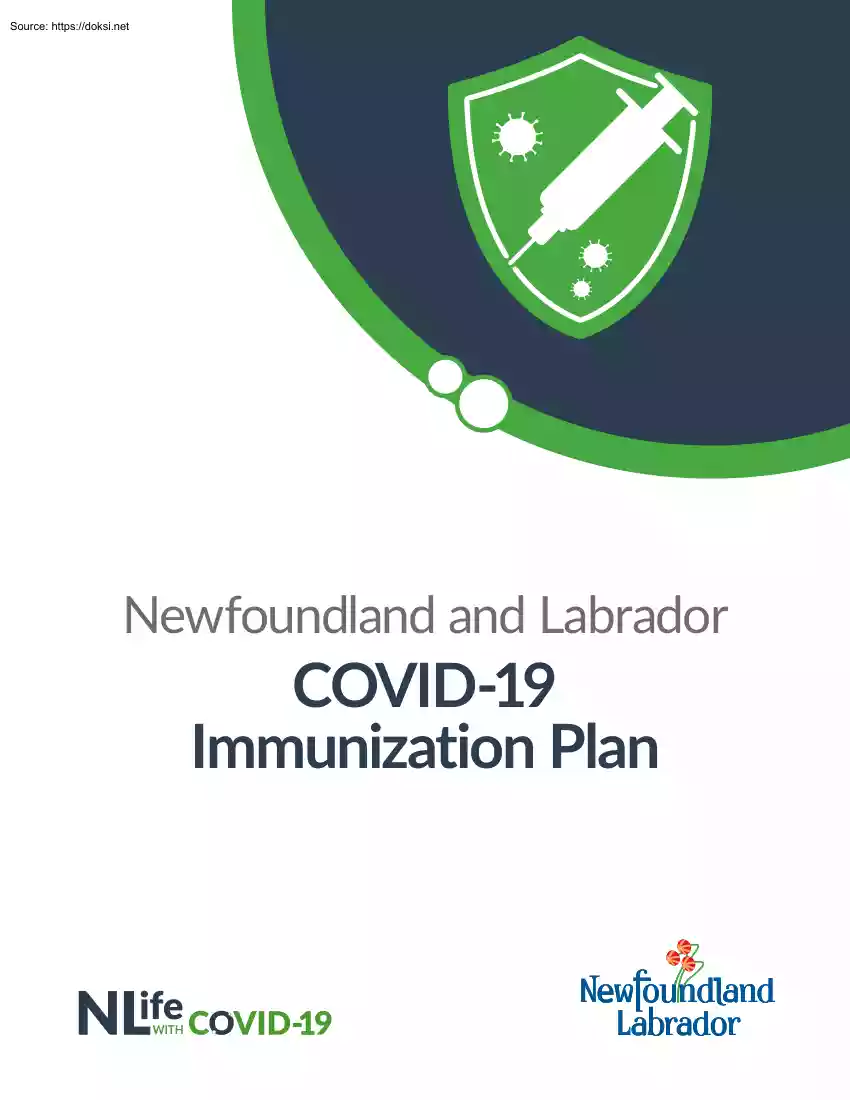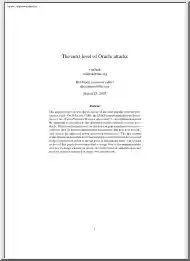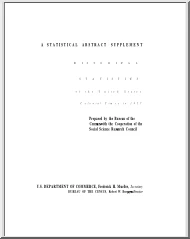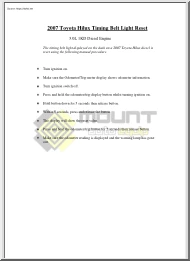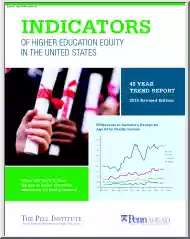Comments
No comments yet. You can be the first!
What did others read after this?
Content extract
Newfoundland and Labrador COVID-19 Immunization Plan The development and implementation of a safe and effective COVID-19 immunization program is a key component to Newfoundland and Labrador’s COVID-19 response. Through the Newfoundland and Labrador COVID-19 Immunization Plan, the number of cases, hospitalizations, and deaths will be reduced, while minimizing societal disruption as a result of COVID-19. The ultimate goal of Newfoundland and Labrador’s COVID-19 Immunization Plan is to reduce severe illness and death due to COVID-19, and protect those most vulnerable. We will do this by immunizing as many people as quickly as possible in an ethical and risk-stratified manner. Note: This plan is subject to change with emerging evidence, changes in virus transmission, vaccine availability, and other factors. Any changes to this plan will be communicated accordingly Why get vaccinated Every Newfoundlander and Labradorian who can get vaccinated, should get vaccinated. Vaccines are a
safe and effective way to help protect you and your family from COVID-19. When a large proportion of the population is vaccinated (herd immunity), it is harder for the virus to spread. When herd immunity is reached, the spread of the virus will slow down or stop. When you choose to get vaccinated against COVID-19, you are helping to save lives by protecting you and your entire community from the virus. Review and Approval Process for Vaccines Any vaccines used in Canada must be approved by Health Canada through its rigorous regulatory process. The same review process is applied to all vaccines COVID-19 vaccines will only be used in Newfoundland and Labrador if they are approved by Health Canada, and the evidence shows that they are safe, effective, of good quality, and demonstrates that the benefits of use outweigh the risks. • Watch a video on how vaccines are developed in Canada Vaccines are constantly monitored after they are approved for safety and effectiveness. Pharmaceutical
companies, health care providers and Health Canada are involved in this monitoring process. Health Canada and the Public Health Agency of Canada will take action if there are any problems with a vaccine. Vaccines are monitored in this way for as long as they are in use. 1 Currently, there are three vaccines approved in Canada for prevention of COVID-19: • Pfizer-BioNTech vaccine (recommended for individuals 16 years of age and older); • Moderna vaccine (recommended for individuals 18 years of age and older); • AstraZeneca vaccine (recommended for individuals 55 years of age and older)1; and • Janssen vaccine (recommended for individuals 18 years of age and older). There are many other vaccines at different stages of development around the world. Dose Schedule Currently, except for the Janssen vaccine, all approved vaccines in Canada consist of two doses. The Janssen vaccine consists of a single dose. The National Advisory Committee on Immunization recommends that, in the
context of limited COVID-19 vaccine supply, the interval for the second dose of vaccine should be extended up to four months in order to maximize the number of individuals benefiting at least one dose of vaccine. These recommendations are continually monitored based on emerging evidence Both your first dose and second dose must be of the same vaccine. It is very important to get both doses of COVID-19 vaccine. One dose of the vaccine provides you some protection that lasts for a few weeks, and the second dose provides stronger and longer lasting protection. Phased Approach Vaccine doses for the whole population will not arrive at the same time. That is why we are using a phased approach to administer vaccines, starting with those most at risk. Newfoundland and Labrador’s COVID-19 Immunization Plan is being delivered in three phases. The province’s approach to vaccine delivery is based on guidance from: • • • • Scientists, researchers and clinicians; The National Advisory
Committee on Immunization (NACI); The Chief Medical Officer of Health; and The Provincial Health Ethics Network of Newfoundland and Labrador (PHENNL). It is important to note that priority groups, including the order of vaccine administration, may need to change as COVID-19 epidemiology and vaccine logistics in Newfoundland and Labrador evolve. Vaccine rollout across the four regional health authorities may also vary due to these and other factors. 1 The National Advisory Committee on Immunization does not recommend the use of the AstraZeneca vaccine in adults under 55 years of age while Vaccine-Induced Prothrombotic Immune Thrombocytopenia (VIPIT) following vaccination with AstraZeneca COVID-19 vaccine is investigated further. 2 Phase 1 (in progress) This phase focuses on those most at risk of exposure to COVID-19, those most likely to experience severe complications due to COVID-19 infection, and those essential to maintaining the provincial pandemic response. In keeping with
recommendations from NACI, the initial supply of COVID-19 vaccine in Newfoundland and Labrador will be prioritized for the following groups: • Congregate living settings for seniors; • Health care workers at high risk of exposure to COVID-19, and those who are directly involved in the pandemic response;2 • Adults 85 years of age and older; and • Adults in remote and isolated Indigenous communities. Phase 2 Age remains the biggest risk factor for severe complications, hospitalizations and death due to COVID-19. Phase 2 of the COVID-19 Immunization Plan aims to strike a balance between protecting the most vulnerable, while maintaining capacity to respond to incidents that pose significant risk to public safety. Once the people in Phase 1 have been immunized and additional vaccine supply becomes available, these groups will be prioritized for vaccination: • Adults 70 years of age and older, starting with those 80 years and older; • Adults who identify as First Nations, Inuit
or Métis; • Staff, residents, and essential visitors at congregate living settings (shelters, group homes, transition houses, correctional facilities, and children or youth residential settings); • Adults 60 to 69 years of age; • Adults in marginalized populations where infection could have disproportionate consequences (e.g people experiencing homelessness or with precarious housing arrangements); • First responders (including career and volunteer firefighters, police officers, border services, and search and rescue crew); • Frontline health care workers who were not immunized in Phase 1 and who may come into direct contact with patients (includes private health care workers); • People ages 16 to 59 who are clinically extremely vulnerable (as defined in the chart on the next page and following consultation with their health care provider); • People who are required to regularly travel in and out of the province for work, including truck drivers and other rotational
workers;3 and • Frontline essential workers who have direct contact with the public and cannot work from home during Alert Level 5. 2 This includes staff in acute care, long-term care, personal care homes, and community, including home care workers, working in the following settings: COVID-19 testing and assessments; emergency departments and labour and delivery rooms (case rooms); COVID-19 immunization programs; COVID-19 units; and, critical care units. 3 PPeople who live in Labrador or Quebec that cross the Labrador-Quebec border every day for work are not included in this group. 3 In the context of COVID-19 vaccination, people who are clinically extremely vulnerable include: • Solid organ transplant recipients; • Patients with pulmonary hypertension (PH) requiring PH-specific therapy; • People with specific cancers: • Any asthma or chronic obstructive pulmonary disease (COPD) patient with a severe exacerbation in the previous year (resulting in emergency room visit
or admission); and • People on active/recently completed cytotoxic chemotherapy (within last 12 months) or having other targeted cancer treatments that can affect the immune system, such as protein kinase inhibitors, PARP inhibitors or CDK4/6 inhibitors; • Any patient with severe lung disease based on PFT (FVC or FEV1 or TLC < 50 per cent). • People with cancers of the blood or bone marrow such as leukemia, lymphoma and multiple myeloma at any stage of treatment; • People with rare diseases that significantly increase the risk of infections (such as severe combined immunodeficiency (SCID), homozygous sickle cell disease); • People with lung cancers; • People on immunosuppression therapies sufficient to significantly increase risk of infection (biologic modifiers, steroid use ≥20mg/day for ≥14 days, AZT, cyclophosphamide); • Patients on treatment with monoclonal antibodies or immune therapy; • People who have had bone marrow or stem cell transplants in the
last six months or who are still taking immunosuppression drugs; and • People who have had their spleen removed; • Those over 16 years of age with significant intellectual or developmental disabilities; • Patients on treatment with different anti-cancer hormonal medications (e.g breast and prostate cancers). • Adults on dialysis or stage 5 kidney disease; • Respiratory patients: • All patients on chronic oxygen therapy (regardless of disease); • Women who are pregnant with significant heart disease, congenital or acquired; and • All patients (≥16 years of age) with cystic fibrosis; • People with significant neuromuscular conditions requiring respiratory support. • All patients with interstitial lung disease (e.g idiopathic pulmonary fibrosis, CTD-ILD, etc.); 4 Phase 3 Once the people in high-risk priority groups have been immunized, the vaccine will be offered to the general public. Vaccines in Phase 3 will be offered to: • Anyone in priority groups
remaining from Phase 1 or 2; and • Adults 16-59 years of age, starting with those 55 years of age and above, and then decreasing age limit by five-year age increments. Timeline Exact timelines for Newfoundland and Labrador’s COVID-19 Immunization Plan depend on vaccine supply. The timeline for each phase may change due to vaccine availability Timelines for each phase may also vary between regional health authorities. Once people in a given phase are vaccinated, we will move to the next phase. We expect to progress through the phases as follows: Phase 1: December 2020 to March 2021 Phase 2: April 2021 to June 2021 Phase 3: July 2021 to September 2021 You will still be able to get vaccinated once a new phase starts. Once you become eligible, you are always eligible. Vaccination Clinics Vaccines will be available in a variety of settings as the COVID-19 Immunization Plan progresses. The goal is to provide multiple options so that anyone who wants to get vaccinated, can get
vaccinated. 5 Phase 1 • Led by Regional Health Authority Public Health teams. Clinic locations will be communicated by the Regional Health Authority to priority groups. Phase 2 and 3 • Public vaccination clinics will be led by Regional Health Authority Public Health teams. Vaccination clinics will be organized across the province; • Mobile clinics will be available for smaller communities, individuals who are homebound, and other vulnerable populations; • Newfoundlanders and Labradorians will also be able to get their vaccines from participating health care professionals such as physicians and pharmacists; and • Additional vaccine clinics may also be held in partnership with large businesses/ industries and in community-based settings. As more vaccines become available that have less logistically challenging storage and handling requirements, it will be important to maximize the number of immunizers participating in COVID-19 vaccine administration to ensure an efficient
vaccine rollout. Booking an Appointment The province is launching a pre-registration system to help plan and coordinate vaccination appointments. Pre-registration will allow us to plan clinics and book appointments Pre-registration is available for people ages 70 years and older, and in mid-March 2021 for the remaining people in Phase 2 priority groups. Pre-registration is available for people ages 70 years and older first to allow for a seamless transition between Phase 1 and 2. People will be able to pre-register online at www.covidvaccinenlchinlca For those who do not have internet access, please call: 1-833-668-3930 or 709-273-3930 The pre-registration system will allow you to identify how you wish to be contacted to book a vaccine appointment. You will be contacted when a vaccine appointment is available for you In Phase 3, you will be able to book your appointments online or by phone. More details about this process will be made available as Phase 3 approaches. 6 Phase 1
• Residents, staff and essential visitors at congregate living settings for seniors will be contacted directly; • Priority health care workers will be contacted to book an appointment; • Adults in remote and isolated Indigenous communities can book appointments through their local public health offices; and • Those of advanced age can pre-register and will be contacted to book a vaccine appointment. Phase 2 • People in Phase 2 priority groups will be able to pre-register in mid-March 2021. You will be contacted to book a vaccine appointment. Phase 3 • The remainder of the population will be able to book an appointment online or by phone. Lifting Public Health Measures Current COVID Vaccines have been shown to be effective at reducing severe COVID disease. We are still learning how the vaccine affects virus spread. Until more evidence is available, people must continue to comply with the Special Measures Orders that are in place, and follow the Public Health Guidance for
All Alert Levels, even after vaccination. gov.nlca/covid-19 7
safe and effective way to help protect you and your family from COVID-19. When a large proportion of the population is vaccinated (herd immunity), it is harder for the virus to spread. When herd immunity is reached, the spread of the virus will slow down or stop. When you choose to get vaccinated against COVID-19, you are helping to save lives by protecting you and your entire community from the virus. Review and Approval Process for Vaccines Any vaccines used in Canada must be approved by Health Canada through its rigorous regulatory process. The same review process is applied to all vaccines COVID-19 vaccines will only be used in Newfoundland and Labrador if they are approved by Health Canada, and the evidence shows that they are safe, effective, of good quality, and demonstrates that the benefits of use outweigh the risks. • Watch a video on how vaccines are developed in Canada Vaccines are constantly monitored after they are approved for safety and effectiveness. Pharmaceutical
companies, health care providers and Health Canada are involved in this monitoring process. Health Canada and the Public Health Agency of Canada will take action if there are any problems with a vaccine. Vaccines are monitored in this way for as long as they are in use. 1 Currently, there are three vaccines approved in Canada for prevention of COVID-19: • Pfizer-BioNTech vaccine (recommended for individuals 16 years of age and older); • Moderna vaccine (recommended for individuals 18 years of age and older); • AstraZeneca vaccine (recommended for individuals 55 years of age and older)1; and • Janssen vaccine (recommended for individuals 18 years of age and older). There are many other vaccines at different stages of development around the world. Dose Schedule Currently, except for the Janssen vaccine, all approved vaccines in Canada consist of two doses. The Janssen vaccine consists of a single dose. The National Advisory Committee on Immunization recommends that, in the
context of limited COVID-19 vaccine supply, the interval for the second dose of vaccine should be extended up to four months in order to maximize the number of individuals benefiting at least one dose of vaccine. These recommendations are continually monitored based on emerging evidence Both your first dose and second dose must be of the same vaccine. It is very important to get both doses of COVID-19 vaccine. One dose of the vaccine provides you some protection that lasts for a few weeks, and the second dose provides stronger and longer lasting protection. Phased Approach Vaccine doses for the whole population will not arrive at the same time. That is why we are using a phased approach to administer vaccines, starting with those most at risk. Newfoundland and Labrador’s COVID-19 Immunization Plan is being delivered in three phases. The province’s approach to vaccine delivery is based on guidance from: • • • • Scientists, researchers and clinicians; The National Advisory
Committee on Immunization (NACI); The Chief Medical Officer of Health; and The Provincial Health Ethics Network of Newfoundland and Labrador (PHENNL). It is important to note that priority groups, including the order of vaccine administration, may need to change as COVID-19 epidemiology and vaccine logistics in Newfoundland and Labrador evolve. Vaccine rollout across the four regional health authorities may also vary due to these and other factors. 1 The National Advisory Committee on Immunization does not recommend the use of the AstraZeneca vaccine in adults under 55 years of age while Vaccine-Induced Prothrombotic Immune Thrombocytopenia (VIPIT) following vaccination with AstraZeneca COVID-19 vaccine is investigated further. 2 Phase 1 (in progress) This phase focuses on those most at risk of exposure to COVID-19, those most likely to experience severe complications due to COVID-19 infection, and those essential to maintaining the provincial pandemic response. In keeping with
recommendations from NACI, the initial supply of COVID-19 vaccine in Newfoundland and Labrador will be prioritized for the following groups: • Congregate living settings for seniors; • Health care workers at high risk of exposure to COVID-19, and those who are directly involved in the pandemic response;2 • Adults 85 years of age and older; and • Adults in remote and isolated Indigenous communities. Phase 2 Age remains the biggest risk factor for severe complications, hospitalizations and death due to COVID-19. Phase 2 of the COVID-19 Immunization Plan aims to strike a balance between protecting the most vulnerable, while maintaining capacity to respond to incidents that pose significant risk to public safety. Once the people in Phase 1 have been immunized and additional vaccine supply becomes available, these groups will be prioritized for vaccination: • Adults 70 years of age and older, starting with those 80 years and older; • Adults who identify as First Nations, Inuit
or Métis; • Staff, residents, and essential visitors at congregate living settings (shelters, group homes, transition houses, correctional facilities, and children or youth residential settings); • Adults 60 to 69 years of age; • Adults in marginalized populations where infection could have disproportionate consequences (e.g people experiencing homelessness or with precarious housing arrangements); • First responders (including career and volunteer firefighters, police officers, border services, and search and rescue crew); • Frontline health care workers who were not immunized in Phase 1 and who may come into direct contact with patients (includes private health care workers); • People ages 16 to 59 who are clinically extremely vulnerable (as defined in the chart on the next page and following consultation with their health care provider); • People who are required to regularly travel in and out of the province for work, including truck drivers and other rotational
workers;3 and • Frontline essential workers who have direct contact with the public and cannot work from home during Alert Level 5. 2 This includes staff in acute care, long-term care, personal care homes, and community, including home care workers, working in the following settings: COVID-19 testing and assessments; emergency departments and labour and delivery rooms (case rooms); COVID-19 immunization programs; COVID-19 units; and, critical care units. 3 PPeople who live in Labrador or Quebec that cross the Labrador-Quebec border every day for work are not included in this group. 3 In the context of COVID-19 vaccination, people who are clinically extremely vulnerable include: • Solid organ transplant recipients; • Patients with pulmonary hypertension (PH) requiring PH-specific therapy; • People with specific cancers: • Any asthma or chronic obstructive pulmonary disease (COPD) patient with a severe exacerbation in the previous year (resulting in emergency room visit
or admission); and • People on active/recently completed cytotoxic chemotherapy (within last 12 months) or having other targeted cancer treatments that can affect the immune system, such as protein kinase inhibitors, PARP inhibitors or CDK4/6 inhibitors; • Any patient with severe lung disease based on PFT (FVC or FEV1 or TLC < 50 per cent). • People with cancers of the blood or bone marrow such as leukemia, lymphoma and multiple myeloma at any stage of treatment; • People with rare diseases that significantly increase the risk of infections (such as severe combined immunodeficiency (SCID), homozygous sickle cell disease); • People with lung cancers; • People on immunosuppression therapies sufficient to significantly increase risk of infection (biologic modifiers, steroid use ≥20mg/day for ≥14 days, AZT, cyclophosphamide); • Patients on treatment with monoclonal antibodies or immune therapy; • People who have had bone marrow or stem cell transplants in the
last six months or who are still taking immunosuppression drugs; and • People who have had their spleen removed; • Those over 16 years of age with significant intellectual or developmental disabilities; • Patients on treatment with different anti-cancer hormonal medications (e.g breast and prostate cancers). • Adults on dialysis or stage 5 kidney disease; • Respiratory patients: • All patients on chronic oxygen therapy (regardless of disease); • Women who are pregnant with significant heart disease, congenital or acquired; and • All patients (≥16 years of age) with cystic fibrosis; • People with significant neuromuscular conditions requiring respiratory support. • All patients with interstitial lung disease (e.g idiopathic pulmonary fibrosis, CTD-ILD, etc.); 4 Phase 3 Once the people in high-risk priority groups have been immunized, the vaccine will be offered to the general public. Vaccines in Phase 3 will be offered to: • Anyone in priority groups
remaining from Phase 1 or 2; and • Adults 16-59 years of age, starting with those 55 years of age and above, and then decreasing age limit by five-year age increments. Timeline Exact timelines for Newfoundland and Labrador’s COVID-19 Immunization Plan depend on vaccine supply. The timeline for each phase may change due to vaccine availability Timelines for each phase may also vary between regional health authorities. Once people in a given phase are vaccinated, we will move to the next phase. We expect to progress through the phases as follows: Phase 1: December 2020 to March 2021 Phase 2: April 2021 to June 2021 Phase 3: July 2021 to September 2021 You will still be able to get vaccinated once a new phase starts. Once you become eligible, you are always eligible. Vaccination Clinics Vaccines will be available in a variety of settings as the COVID-19 Immunization Plan progresses. The goal is to provide multiple options so that anyone who wants to get vaccinated, can get
vaccinated. 5 Phase 1 • Led by Regional Health Authority Public Health teams. Clinic locations will be communicated by the Regional Health Authority to priority groups. Phase 2 and 3 • Public vaccination clinics will be led by Regional Health Authority Public Health teams. Vaccination clinics will be organized across the province; • Mobile clinics will be available for smaller communities, individuals who are homebound, and other vulnerable populations; • Newfoundlanders and Labradorians will also be able to get their vaccines from participating health care professionals such as physicians and pharmacists; and • Additional vaccine clinics may also be held in partnership with large businesses/ industries and in community-based settings. As more vaccines become available that have less logistically challenging storage and handling requirements, it will be important to maximize the number of immunizers participating in COVID-19 vaccine administration to ensure an efficient
vaccine rollout. Booking an Appointment The province is launching a pre-registration system to help plan and coordinate vaccination appointments. Pre-registration will allow us to plan clinics and book appointments Pre-registration is available for people ages 70 years and older, and in mid-March 2021 for the remaining people in Phase 2 priority groups. Pre-registration is available for people ages 70 years and older first to allow for a seamless transition between Phase 1 and 2. People will be able to pre-register online at www.covidvaccinenlchinlca For those who do not have internet access, please call: 1-833-668-3930 or 709-273-3930 The pre-registration system will allow you to identify how you wish to be contacted to book a vaccine appointment. You will be contacted when a vaccine appointment is available for you In Phase 3, you will be able to book your appointments online or by phone. More details about this process will be made available as Phase 3 approaches. 6 Phase 1
• Residents, staff and essential visitors at congregate living settings for seniors will be contacted directly; • Priority health care workers will be contacted to book an appointment; • Adults in remote and isolated Indigenous communities can book appointments through their local public health offices; and • Those of advanced age can pre-register and will be contacted to book a vaccine appointment. Phase 2 • People in Phase 2 priority groups will be able to pre-register in mid-March 2021. You will be contacted to book a vaccine appointment. Phase 3 • The remainder of the population will be able to book an appointment online or by phone. Lifting Public Health Measures Current COVID Vaccines have been shown to be effective at reducing severe COVID disease. We are still learning how the vaccine affects virus spread. Until more evidence is available, people must continue to comply with the Special Measures Orders that are in place, and follow the Public Health Guidance for
All Alert Levels, even after vaccination. gov.nlca/covid-19 7
